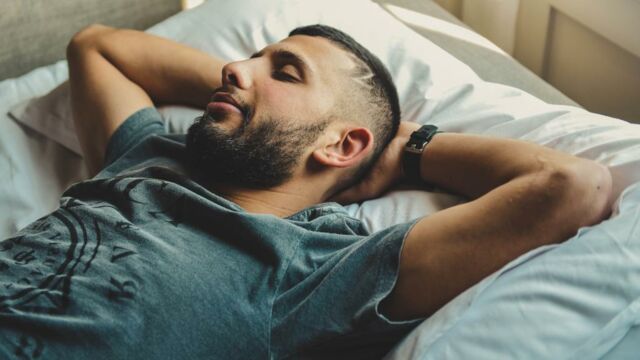What is sexsomnia?

Is it possible to engage in sexual intercourse while being completely unconscious?
Ever heard of sleepwalking? Now imagine the same thing but instead of walking, you are—well, you know, doing it or at least trying to.
Discover our latest podcast
Though it might not sound like such a bad thing at first, this type of parasomnia (a sleep disorder that causes abnormal behaviour while sleeping) can potentially lead to rape as the condition is sexually aggressive in nature. Robert Oexman, DC, director of the Sleep to Live Institute explains that:
More under this adMore under this adSleep sex or sexsomnia is a form of non-rapid eye movement (NREM) parasomnia, similar to sleepwalking, that causes people to engage in sexual acts such as masturbation, fondling, intercourse, and sometimes rape while they are asleep.
And adds:
This is similar to sleepwalking in that it occurs during NREM sleep, but medically it is a separate condition. Most cases involve no recall and even a denial that the event occurred.More under this adMore under this ad
What causes this disorder?
As with most forms of parasomnia, sexsomnia is very poorly understood mainly due to the fact that there is too much research need in order to fully comprehend human sleep cycles. What is known however is that certain risk factors are responsible for increasing the chances for some people to experience this disorder.
In particular, secondary sleep disorders such as sleep deprivation or obstructive sleep apnea can trigger sexual arousal during sleep to manifest itself. Similarly, alcohol and drug abuse have been linked with increase likelihood of developing sexsomnia.
More under this adMore under this adHow common is sexsomnia?
Exact figures are far from being accurate as doctors suspect that it is a condition that many people are embarrassed about. As a result, those suffering from the disorder will be less inclined to report it.
According to one study conducted by the Toronto Western Hospital, men are more likely to experience sleep sex than women are, though both can be affected. Results from the research filled out by 832 participants found that 62 participants, or 7.6%, experienced sexsomnias—11% of the men and 4% of the women.
More under this adMore under this adHow can it be treated?
At the moment, there are no prescription drugs specifically designed to treat sexsomnia but some doctors have reported having successfully been able to use sedatives and antidepressants to help patients.
Another approach to treating sexsomnia is creating a safe environment for those who suffer from the condition. Some examples include: sleeping in a separate bedroom, locking doors, or even putting alarms on doors to wake people up and make them aware of what is happening.
More under this ad